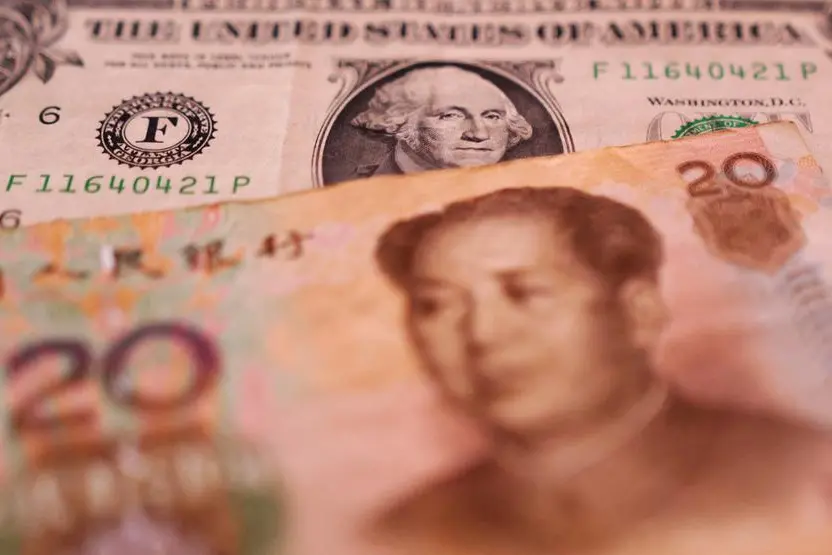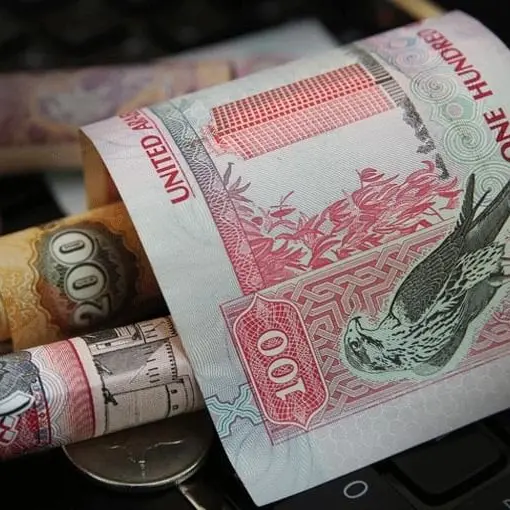PHOTO
SHANGHAI/BEIJING - China's central bank has asked domestic lenders to scale back outward bond investments according to two sources with direct knowledge of the matter, the latest in series of increasingly strong steps to support the yuan.
The directive, issued this week, is for banks to restrict southbound purchases under the Bond Connect scheme, and is aimed at limiting the supply of yuan offshore, the sources said.
The sources spoke on condition of anonymity as they were not authorised to talk to the media. The PBOC declined to comment on the content of the window guidance.
The move is the latest in a raft of recent efforts to make it harder to short the yuan and to prop up the currency against the U.S. dollar.
As China's financial markets suffer losses and heavy outflows, and investors grow impatient at the lack of more forceful action to address the stalling economy, the move also adds to the sense that policymakers see steadying the currency as an urgent task.
The currency weakness underlines one of the key challenges for Beijing in its efforts to revive growth as any major monetary easing measures could further inflame yuan depreciation pressure and speed up capital outflows.
The guidance "could reduce mainland capital flowing out through the bond market," said Ken Cheung, chief Asian FX strategist at Mizuho Bank. "And it could also drive offshore yuan yields higher to support the renminbi."
The yuan, which is down more than 5% against the U.S. currency this year, hit a 10-month low of 7.3180 per dollar last week, coming within a whisker of levels last seen during the Global Financial Crisis of 2008. It has since firmed to trade steady at 7.2872 on Friday.
The offshore yuan has also steadied, but the spread between onshore and offshore forwards, a measure of the cost of borrowing yuan has spiked to its widest in five years and points to a squeeze for offshore short sellers.
One-month yuan borrowing costs in Hong Kong - another measure of offshore liquidity, which rises when supply is tight also hit near five-year highs earlier this week.
"The magnitude of the squeeze is still quite mild, maybe serving as a warning to speculative flows of such short CNH positions," said Zhi Xiaojia, chief China economist at Credit Agricole.
BEARS BEWARE
Under the two-year old Bond Connect scheme, the subject of the central bank guidance, mainland institutional investors can buy Hong Kong traded bonds and at the end of July they held some 426.98 billion yuan ($60 billion) in offshore paper.
It is not clear if the request to cut back such holdings refers to banks' investments or those owned on clients' behalf. However July was the first month of the year where the total fell, dropping by 24.6 billion yuan from a month earlier.
The money flow is not enormous, but because the move follows other efforts at stalling short sellers, sources familiar with the guidance believed it would send a powerful signal.
At the same time, the PBOC has also been nudging banks to stop subscribing to Negotiable Certificates of Deposit (NCDs) issued by offshore banks, two separate sources earlier this week, another step aimed at cutting offshore yuan trade.
"Restricting yuan from flowing to offshore market could tighten offshore yuan liquidity to raise the financing cost," said one of the sources, who reckons the central bank's move is a strike against foreign yuan bears.
Increased yuan bill sales by China's central bank in Hong Kong this week also helped tighten liquidity in the offshore market to help stabilise the yuan, a former central banker said.
For weeks the central bank been setting the yuan's trading band above market expectations, and state banks have been buying yuan in onshore and offshore foreign exchange markets.
Earlier this week China's major state-owned banks were drawing down offshore yuan liquidity in London and New York trade, driving the sudden rise in yuan forwards.
($1 = 7.2862 yuan)
(Reporting by Beijing and Shanghai Newsroom; Writing by Tom Westbrook; Editing by Shri Navaratnam)





















